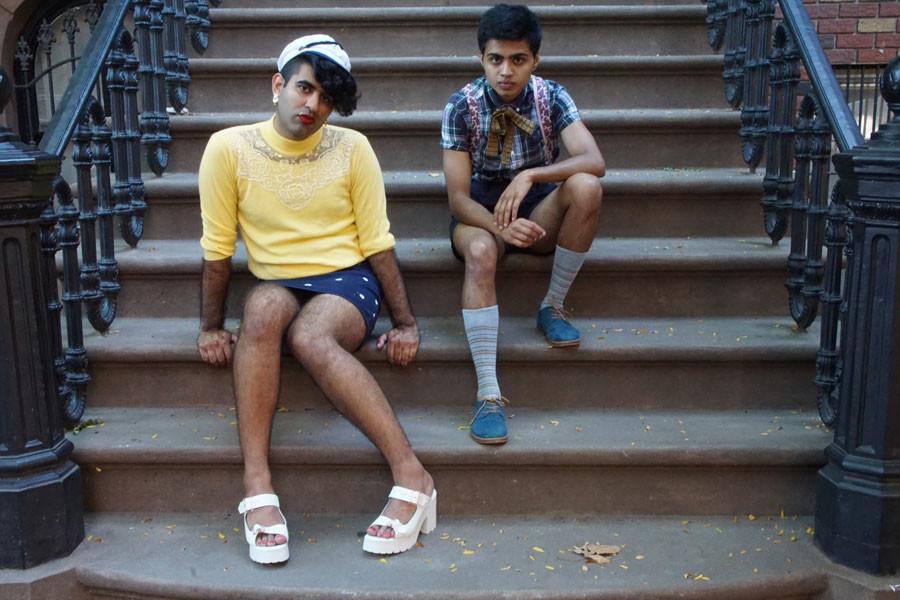DarkMatter uses comedy, spoken word to highlight trans issues
Alok Vaid-Menon and Janani Balasubramanian are the members of the artist and activist duo DarkMatter. The pair will be performing on campus on Oct. 25.
October 21, 2015
A&E
Dark energy and dark matter together comprise over 90 percent of the universe, but they are poorly understood by even the most learned of people. This fact inspired Alok Vaid-Menon and Janani Balasubramanian to name their performance art duo DarkMatter.
Multicultural Student Affairs and the Rainbow Alliance are bringing the duo to campus as a part of Trans Empowerment Month. DarkMatter will be leading a workshop with Students for Justice in Palestine and will perform Oct. 25.
DarkMatter began as the brainchild of Vaid-Menon and Balasubramanian while they were undergraduates at Stanford University. The New York-based duo travels across North America and the world, bringing spoken word, comedy and fashion performances and workshops along with a message of trans inclusion to venues. They have performed at locations such as Asian American Writer’s Workshop and Queer International Arts Festival in New York, as well as Warehouse 9 in Copenhagen and over 100 college campuses.
“We define ourselves as an artistic collaboration,” Vaid-Menon said. “We defy forms.”
Rainbow Alliance president Bo Suh chose DarkMatter because they reflect Rainbow Alliance’s interests in LGBT activism and are widely known, which will draw a large and diverse audience.
Suh thinks that DarkMatter digs deeper into issues in the community because they challenge ideals and the status quo of the LGBT movement by going beyond issues like marriage equality. This also challenges their audiences to do the same, Suh said.
“A lot of their material is positioned against the norms that have shaped the existing LGBTQ rights movement,” Suh said. “They’re not interested in carving a space for themselves in the larger LGBTQ community since it is so cis-normative and white. I believe they’re more interested in liberating themselves from that ‘community’ since it is so exclusive of trans people and (people of color) and instead mobilizing a community that exists outside of those norms.”
Both Vaid-Menon and Balasubramanian identify as gender nonconforming. Their goal is to destroy the notion that one must conform to one gender or another.
“Often when we talk about trans issues, we often erase people who are nonbinary or gender-nonconforming,” Vaid-Menon said. “We need to uplift the narrative of nonbinary people in the LGBT community.”
They strive to create spaces for trans and queer students on campus, because they are so often silenced in or left out of many LGBT-inclusive spaces, especially trans students of color, Vaid-Menon said.
“We find queer and trans people of color are feeling a lot of isolation,” Vaid-Menon said. “It’s really beautiful to connect with queer and trans people of color and talk about how our sexualities and colors intersect.”
Beyond a university campus, their work has created a strong network of activists, Balasubramanian said.
“It’s a pleasure to meet with activists and see what other work is happening,” Balasubramanian said. “We’ve built an amazing network of activists, queer activists and activists of color.”
Balasubramanian said they push anyone and everyone to understand and learn about people that are poorly understood. Oftentimes, trans individuals need to educate their fellow classmates who do not understand their identities, something that can be draining and fruitless for the trans or queer individual.
“We have to be the education for our peers instead of being educated at these institutions,” Vaid-Menon said. “We don’t compromise our identities and challenge our audiences to see the tremendous silence our community faces.”
Email: [email protected]
Twitter: @sophiemmann


